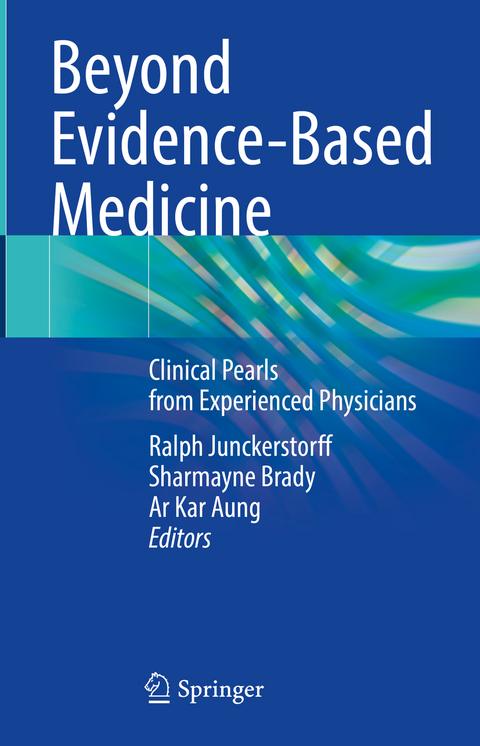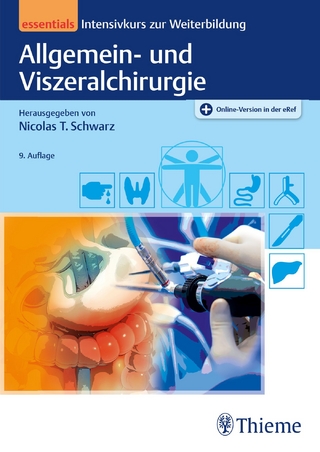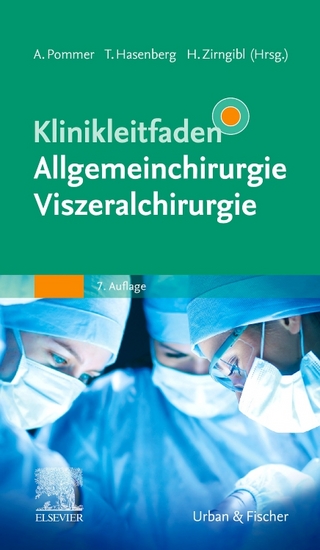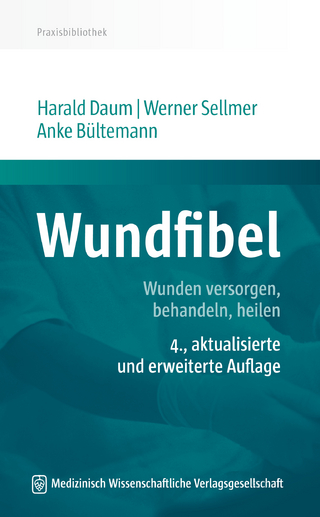
Beyond Evidence-Based Medicine
Springer Verlag, Singapore
978-981-99-4439-2 (ISBN)
- Titel nicht im Sortiment
- Artikel merken
Evidence-based medicine and clinical guidelines help us choose the best management and treatment options for our patients. However, many questions in medicine have not been researched or are not readily amenable to research. In fact, there is more to the art and mastery of practicing clinical medicine than the evidence-based approach. Information gained over years of reflective clinical practice and cumulative wisdom adds value to evidence-based clinical medicine. With experience and clinical gestalt playing an equal, if not a more prominent role than what evidence can offer in a physician's approach to solving clinical problems, this book offers unique perspectives on the practice of medicine.
Beyond Evidence-Based Medicine: Clinical Pearls from Experienced Physicians will be valuable for later-year medical students, medical educators, doctors in training, and consultant physicians alike. Aiming to improve the day-to-day medical practices of professionals, the Editors have invited experienced physicians to share their expertise culminating in a unique book with broad applicability and appeal.
Dr Ralph Junckerstorff is an Internal Medicine and Infectious Diseases physician at Monash Health in Melbourne, Victoria. He graduated from undergraduate medicine from the University of Western Australia in 2000 and became a fellow of the Royal Australasian College of Physicians in 2010. He also holds a Diploma of Tropical Medicine from the University of Liverpool (UK). Dr Junckerstorff has been involved in undergraduate and postgraduate teaching throughout his entire career. He strongly believes in evidence-based medicine but also feels that the knowledge gained from clinical experience is invaluable. He believes that excellence in teaching and mentorship has the power to shape and inspire. Dr Sharmayne Brady is a senior staff specialist in Rheumatology at Alfred Health in Melbourne, Victoria. She studied undergraduate medicine at Monash University and finished her degree with first class honours. She completed an additional, elective, research degree in the subject of cardiovascular risk factors in patients with rheumatoid arthritis, working with leaders in the fields of rheumatology and general medicine at the Alfred Hospital in Melbourne. She trained in adult general medicine at Alfred Health and completed her rheumatology specialist training at both the Alfred and Western Hospitals in Melbourne. Dr Brady completed her PhD in 2021 with Monash University working with internationally renowned osteoarthritis experts. She was supported by a prestigious National Health and Medical Research Council (NHMRC) Clinical Postgraduate Research Scholarship. She has published 15 papers in leading peer-reviewed journals in the fields of rheumatoid arthritis, osteoarthritis, back pain and vasculitis. Dr Brady has presented her research in several leading international and national conferences over the past 10 years. She is also involved with teaching, mentoring, and supervising medical students,physician and rheumatology trainees. She has also recently co-edited a medical textbook for junior doctors called 'Clinical Integration: Medicine', which was published in 2021. Associate Professor Ar Kar Aung is a General and Infectious Diseases physician at Alfred Health in Melbourne, Victoria. He graduated from the University of Melbourne in 2004, attained his Fellowship of the Royal Australasian College of Physicians (FRACP) in 2012 and Fellowship of the Royal College of Physicians (Edinburgh)(FRCP Edin) in 2022. He completed Master of Public Health and Tropical Medicine at James Cook University in 2015. He currently holds an adjunct clinical associate professor position at Monash University. Dr Aung has strong interests in medical education, clinical medicine, quality improvement research, health service and clinical research, medication safety and adverse drug reactions. He was the former Chair of the Australian General and Acute Care Medicine Advance Training Committee at the Royal Australasian College of Physicians (RACP), and former Director of Physician Education at Alfred Health. He also supervised and coordinated General and Acute Care Medicine advance training program at Alfred Health from 2015 to 2019. He has also served in various local and national leadership roles including, as a Board Director on the Internal Medicine Society of Australia and New Zealand (IMSANZ) from 2018 to 2020, as the head of General Medicine research and as the Chair of Adverse Drug Reaction Review Committee at Alfred Health. He is currently the Chair of IMSANZ Research Network and Victorian metropolitan representative at the IMSANZ Council. He has published more than 50 peer-reviewed articles, numerous clinical guidelines and book chapters and co-edited a medical textbook ‘Clinical Integration: Medicine’.
Part I INTERNAL MEDICINE1.Consider adverse drug reactions in undifferentiated presentations
2.Polypharmacy and deprescribing 3.Overdiagnosis 4.Chronic pain management 5.Neuropathic pain is a symptom not a diagnosis 6.Collaborations in complexity 7.The skeleton in the closet: preventing hospital-associated malnutrition 8.An approach to hyponatraemia
Part II GERIATRIC MEDICINE1.Acopia is not a diagnosis
2.Observation of gait in the older adult 3.Decision making capacity 4.Do not use the term "mechanical fall 5.Keep an open mind assessing unsteadiness in older people 6.Right time and place: cognitive testing in hospital 7.First do no harm: beware the prescribing cascade 8.A delicate balance: weighing risks and benefits in frail patients 9.A critical sign: new AF in an inpatient 10.Taboo clues: learning from bodily functions
Part III DELIRIUM1.Prolonged delirium in the ICU
2.Looking for causes of delirium3.Agitating for better care: minimise sedatives in delirium 4.Antipsychotics and acute behavioural disturbance 5.UTI may not be the cause of delirium 6.Is delirium better managed in hospital or at home?
Part IV PALLIATIVE CARE1.Advanced Care Planning
2.Just because a treatment is available does not mean that it must be given 3.Shared decision making in the end of life setting 4.Approaching Goals of Care discussions at the end of life 5.A multimodal approach to managing chronic breathlessness 6.Approach to respiratory secretions at the end of life 7.Medication management in Parkinson's Disease 8.Liver disease and opioid prescribing 9.A good death: respecting goals of care
Part V CARDIOVASCULAR MEDICINE1.Patient adjusted BNP assessment improves diagnostic performance
2.HFPEF: you don't know what you don't look for 3.Sometimes the old ways are best- cost effective bedside diagnostics for peripheral arterial disease 4.Syncope- keeping the workup simple 5.Investigation of syncope 6.Atypical chest pain- fact or fiction? 7.Digoxin- too much of a good thing?
Part VI RENAL MEDICINE1.Acute Kidney Injury workup
2.Beyond the JVP - overcoming common pitfalls in fluid assessment 3.Magnesium: the most forgotten electrolyte 4.Recognising RTA 5.AKI and cancer 6.It's not always essential hypertension 7.Swollen legs 8.Haematuria and AKI
Part VII EMERGENCY AND CRITICAL CARE MEDICINE1.Beware intravenous fluids in the management of pulmonary embolism
2.Fall injuries in the elderly 3.Injecting drug use and sepsis 4.Arterial blood gas interpretation 5.Will a venous blood gas suffice? 6.Danger of intrahospital transfer 7.Post-operative drowsiness
Part VIII RESPIRATORY MEDICINE1.Pneumomediastinum in acute asthma exacerbation
2.Cough induced carotid artery dissection 3.Cough syncope 4.Unilateral diaphragm palsy 5.Oxygen in OSA- swim between the flags 6.Adenocarcinoma presenting as lobar consolidation 7.Neuromuscular disease as a cause of hypercapnic respiratory failure 8.Wheeze in COPD 9.Exercise testing can uncover early respiratory disease 10.Vaping and risks to lung health
Part IX INFECTIOUS DISEASES1.Clinical significance of Staphyloccal bacteriuria
2.Fever of unknown origin 3.Gastroenteritis complicated by mycotic aneurysm 4.A neuropathy in infectious disease 5.Management of suspected epidural abscess 6.Hypervirulent K. pneumoniae with hepatic abscess and endophthalmitis 7.Protean clinical manifestations of Strongyloides stercoralis 8.Vibrio necrotising fasciitis 9.Why did this patient develop invasive S. pneumoniae infection?
Part X GASTROENTEROLOGY1.Acute diarrhoea is likely infectious 2.Always ask about medicines and supplements when faced with elevated liver enzymes3.Never miss the digital rectal examination 4.Proton Pump Inhibitors should be dosed 30 minutes prior to meals 5.Hypovolaemia is a common precipitant of hepatic encephalopathy
Part XI HAEMATOLOGY1.Describing lower limb DVT: needs more than just the knee 2.Fishing for cancer after VTE: a costly expedition with little benefit 3.Not all laboratory abnormalities are in vivo problems 4.Low von Willebrand levels, von Willebrand disease does not make 5.Thrombophilia - To test or not to test, that is the question 6.Myeloma - hiding in plain sight
Part XII ONCOLOGY1.The complications of prostate cancer treatment
2.Dyspnoea in lung cancer 3.Diarrhoea in the setting of immune checkpoint inhibitor therapy 4.Beware back pain in a patient with cancer 5.Facial swelling in a cancer patient
Part XIII NEUROLOGY1.Autoimmune encephalitis- a diagnostic challenge
2.Myasthenia gravis and myositis following immune checkpoint inhibitor therapy3.Convulsive syncope- a common seizure mimicker 4.Headache with red flags 5.Paradoxical seizure exacerbation with antiseizure medications 6.Examination tips in suspected first presentation with multiple sclerosis 7.Migraine aura: typical and atypical 8.Acute Transient Amnesia 9.Wasted first dorsal interosseus muscle: what does it mean?
Part XIV STROKE1.Waking with a weak hand: cortical stroke versus radial palsy
2.Acute onset painful upper or lower extremity limb weakness is unlikely to be due to stroke 3.Thunderclap headache requires urgent investigation and management 4.Subcortical infarcts can have a stuttering course leading to progressive worsening of deficits 5.Limb shaking TIA is frequently mistaken for focal epilepsy 6.Contiguous weakness of upper and lower limbs sparing the face is unusual in stroke
Part XV ENDOCRINOLOGY1.Never withhold basal insulin in patients with insulin deficiency
2.Osteoporosis treatment following minimal trauma fractures 3.Euglycaemic ketoacidosis with Sodium Glucose Co-Transport 2 (SGLT2) inhibitors 4.Free T4 levels and pituitary disorders 5.The testes are the most accessible endocrine organ
Part XVI RHEUMATOLOGY1.Premenopausal females don't get gout
2.Beware of red flags in patients presenting with polymyalgia rheumatica 3.Methotrexate is not contra-indicated in Rheumatoid Arthritis patients with Interstitial Lung Disease 4.Beware of the indeterminate Interferon-Gamma Release Assay tuberculosis test5.In cases of unexplained ALT and AST, don't forget to check a CK 6.Anti-nuclear antibody 7.Cryoglobulinaemia
Part XVII DRUG ALLERGY AND IMMUNOLOGY1.Sulfonamide cross-reactivity
2.Non-IgE mediated immediate reactions 3.Medication timeline is important for causality 4.History-based drug allergy risk stratification 5.The clinical history is the most valuable investigation in allergy assessment 6.Penicillin allergy is not forever
| Erscheinungsdatum | 03.01.2024 |
|---|---|
| Zusatzinfo | 23 Illustrations, color; 4 Illustrations, black and white; XVIII, 524 p. 27 illus., 23 illus. in color. |
| Verlagsort | Singapore |
| Sprache | englisch |
| Maße | 155 x 235 mm |
| Themenwelt | Medizin / Pharmazie ► Allgemeines / Lexika |
| Medizinische Fachgebiete ► Chirurgie ► Viszeralchirurgie | |
| Medizinische Fachgebiete ► Innere Medizin ► Gastroenterologie | |
| Medizin / Pharmazie ► Medizinische Fachgebiete ► Neurologie | |
| Schlagworte | Clinical Cases • Decision-Making • Evidence-based Medicine • Experience-based discussion • Patient Care |
| ISBN-10 | 981-99-4439-2 / 9819944392 |
| ISBN-13 | 978-981-99-4439-2 / 9789819944392 |
| Zustand | Neuware |
| Haben Sie eine Frage zum Produkt? |
aus dem Bereich


